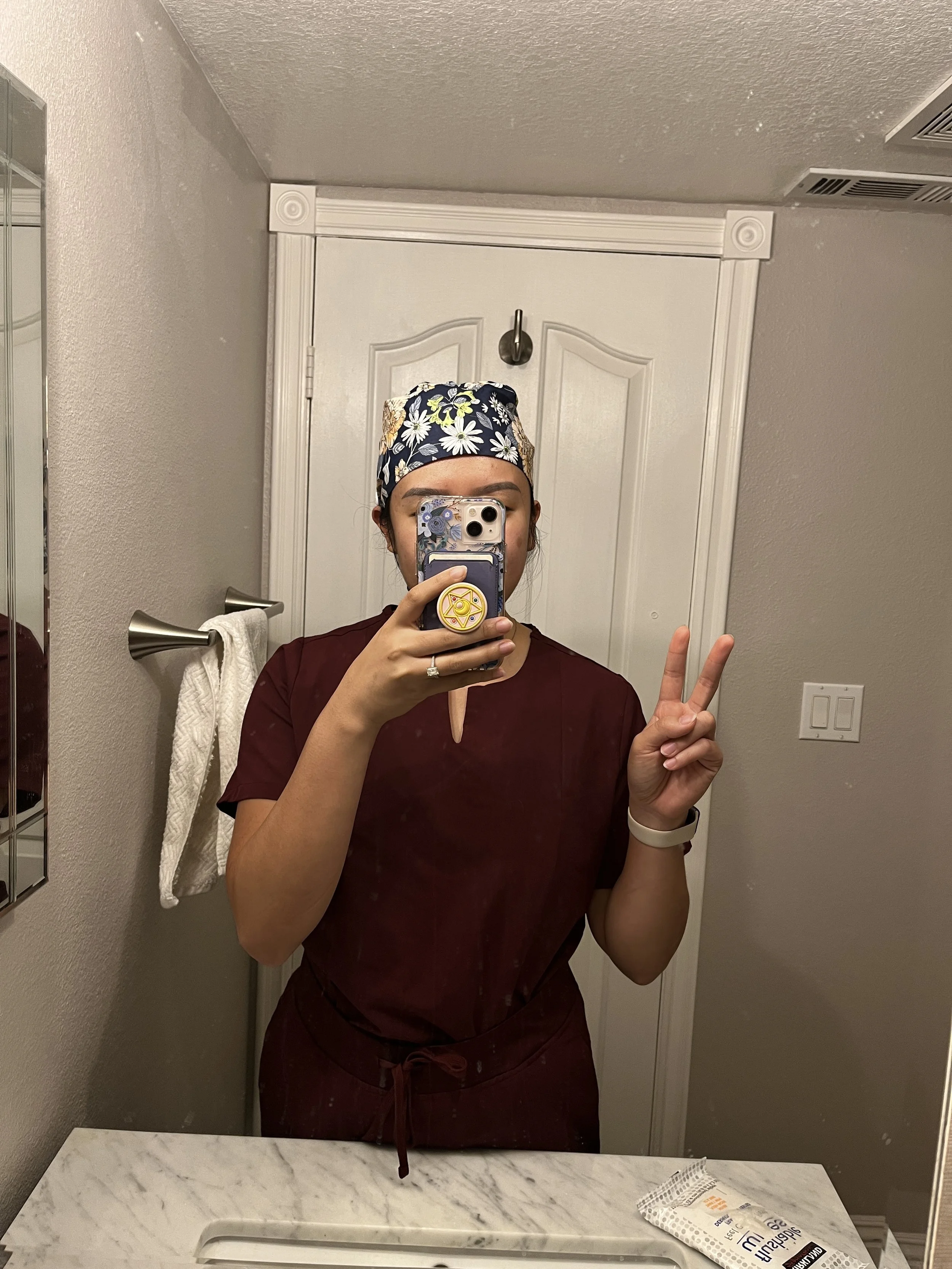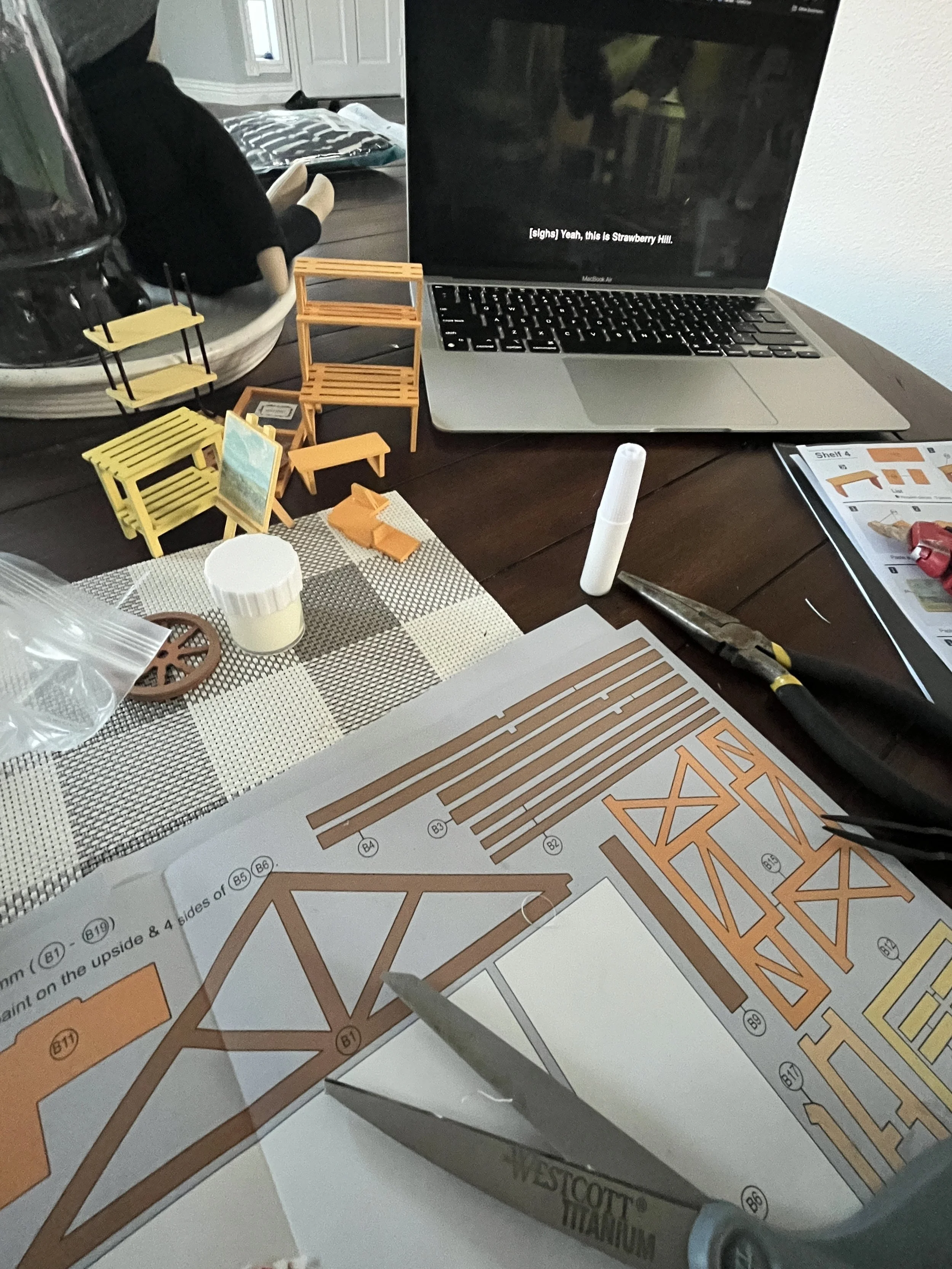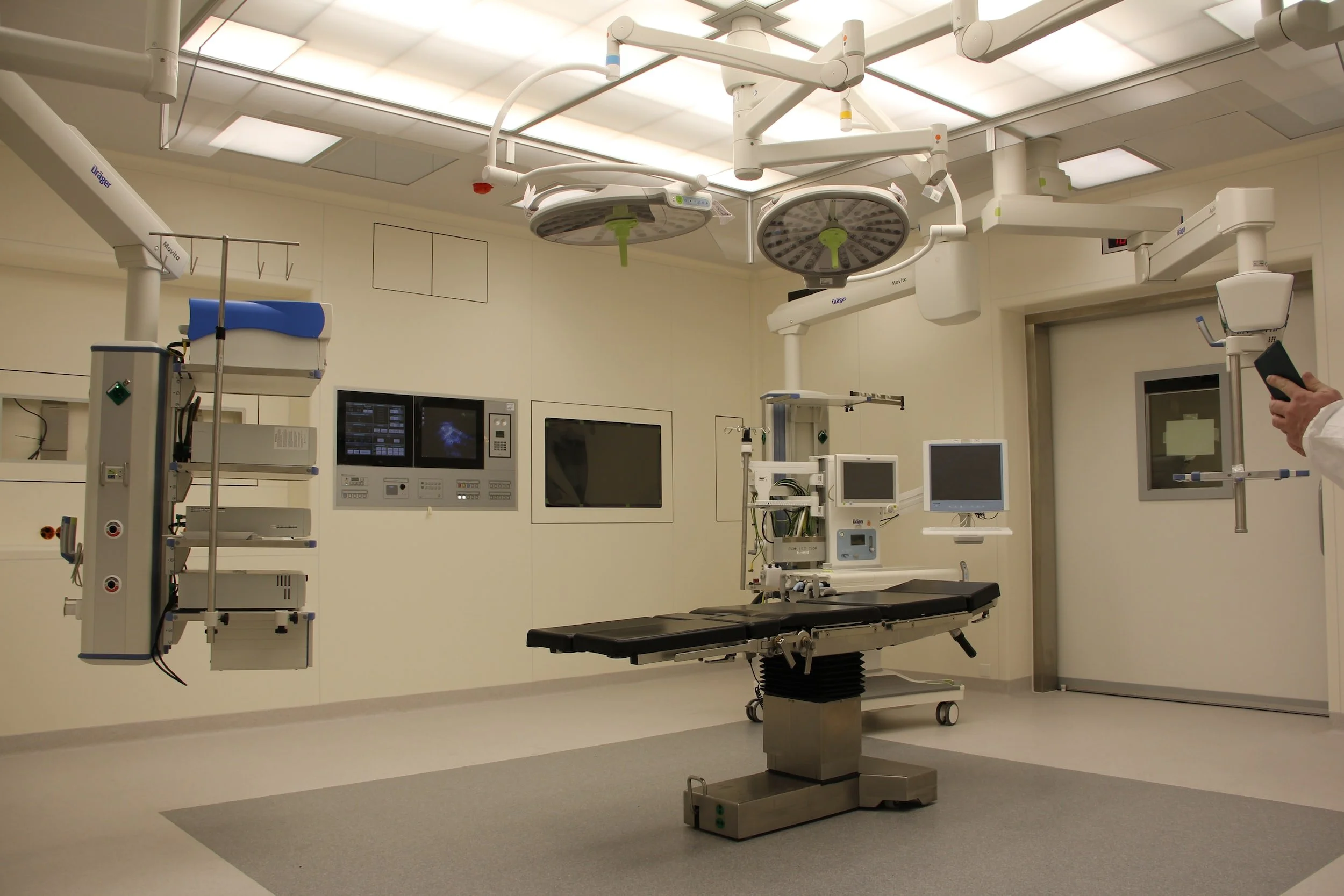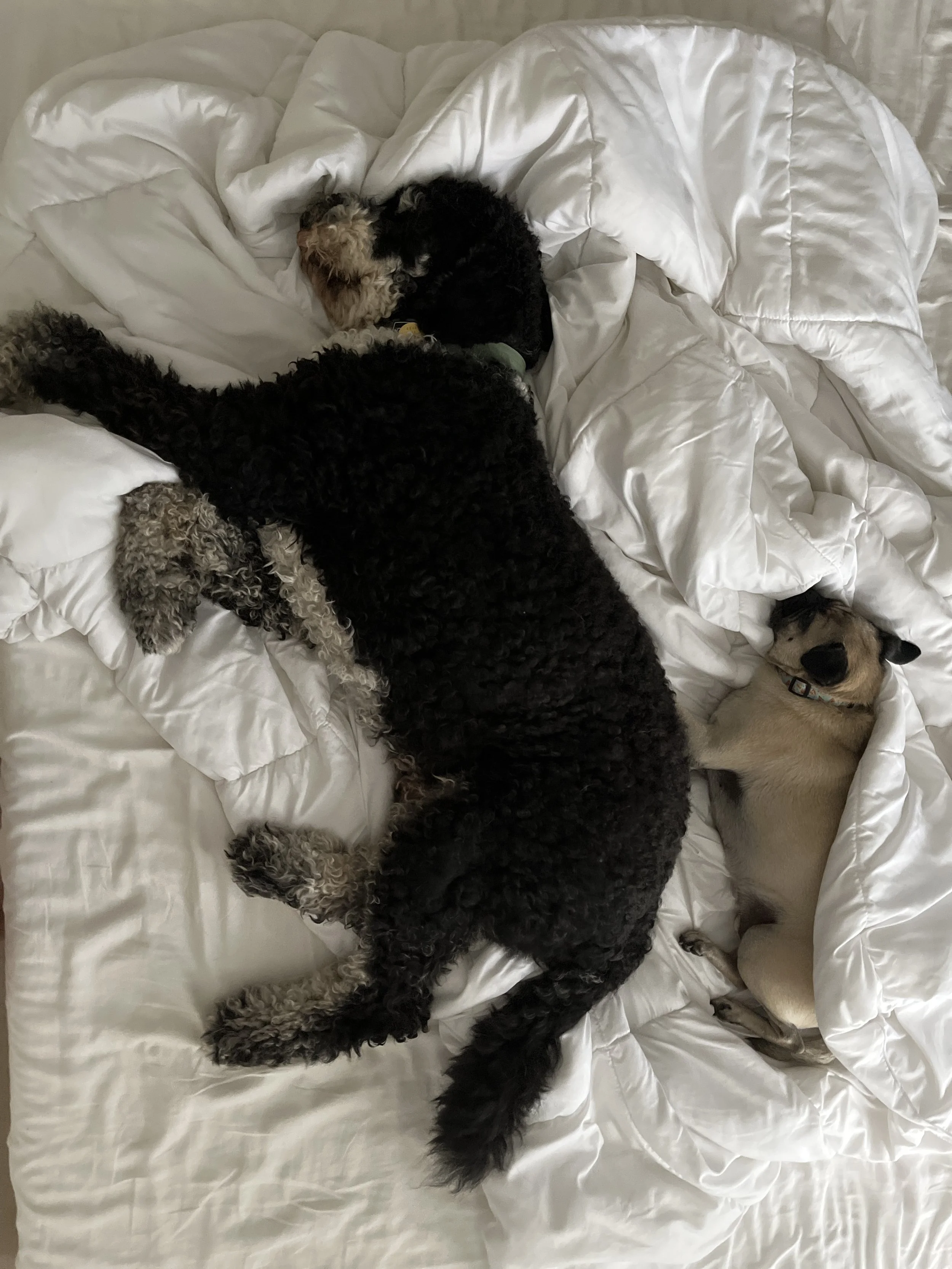If I had another life, I'd be a surgeon || Surgery Rotation
Life
Hi everyone! Can you believe that I’m halfway through 3rd year now? Time absolutely flies.
New Hobbies
I spent the majority of my time with an attending let’s call, Dr. JD. On day one, we sat down at a little table in the hospital lounge area. I thought maybe he was going to lay down the law of his expectations of me, maybe pimp me on something I should’ve known, but he didn’t. He laughed and said, “This rotation is going to be more than surgery.” Even as a surgeon who gave many years to medicine, he loved to teach about philosophy, writing books, history, law, and life outside of medicine.
I carried so much doubt about a career in medicine because I love other stuff. When we read the paper about the culture of medicine in Basic Sciences and how a physician ought to commit to professionalism inside and outside of the hospital, I panicked. Seeing a successful physician be themselves showed me this career doesn’t have to be my limitation unless that’s what I want. So here’s to trying new things!
Building smol things
For my birthday, my mom bought me unintentional surgery practice in the form of a super cute Build Your Own mini greenhouse. I love it and hate it. The instructions are…a form of pure evil. Why don’t any of these numbers mean anything?! Currently, I have built 5 pieces of furniture and no structural elements. I think my priorities are consistent, miniature life and real life.
Audiobooks & Libby
I commute around 45 minutes one way 5 times a week. At first, I was diligent and productive. I was so proud to soak in all the USMLE review podcasts (see my internal medicine blog post for some goodies) to gain some small morsel of information I can desperately use on rounds. Then the sleep deprivation came down, I tried to move on to music. Eventually, EDM felt like a lullaby.
Well! I’ve found another thing to procrastinate with - the Libby App! You can rent audiobooks from local libraries for free. What’s even better, you can have multiple library cards linked. In California, there is a good amount where you don’t even have to go in person to get access to digital content.
I am currently yelling in my car about “They Both Die At the End” and “A Court of Thorns and Roses”.
Video Games
I stared in awe at the screen. It finally worked. Then I obsessively downloaded every free game I could. Figures, I love to get humbled. I’ve become obsessed with Apex. Obsessed and absolutely terrible at it. I also love Phasmophobia, but I’m completely terrified. My palms sweat. I panic talk. It’s great entertainment for my crew. Add me on the discord if you’re on!
BeReal & Maintaining Relationships
It’s been a challenge to maintain relationships in medical school. Especially with those who aren’t forced to spend time with me every day. The amount of studying is endless and probably will always be endless. My advice is to make people a priority. Schedule those dates, have a weekly text, or make those monthly group calls! Find fun ways to stay in touch at a low level of responsibility. For me, it’s been BeReal. It’s a social media app that once a day, alerts everyone of the app to snap a pic of what they’re doing. I can’t spend a million hours retaking photos and editing them and then deciding well I hate them all and never post it or look at it ever again.
Arizona
As a part of my I’m-in-my-late-20’s-and-haven’t-done-anything phase, I went visit Arizona with my fiance for a couple days after my surgery rotation was completed. Arizona is so beautiful. I didn’t know I loved nature or hiking that much. A what’s made a difference is hiking to something. I realized most of my hiking experiences were loops of kind of pretty scenery or to dried up waterfalls. But scaling up questionable boulders to watch sunset on a very not safe cliff has showed me how amazing that is. To not only take in those views, but to do things I’ve never thought I’d do, it’s addicting! So addicting I bought a scratch of national parks map. New bucket list item!
My Surgery Rotation
I was so nervous about starting Surgery! Let’s be real, I’m a soft soul. We’ve all heard the stories about surgery rotations. I absolutely loved my Surgery rotation, though I’m not a surgeon. That’s incredibly clear. It’s true, you always have to ask yourself if you felt a certain way about a rotation because of the people or the actual field. A preceptor can really shape your experience.
Most surgery rotations are scheduled so you work with different attendings and residents in general surgery and other subspecialties. Some of my classmates were doing weeks in Neurosurgery, Cardiac Surgery, Ortho. I primarily worked in General Surgery, Urology, and I saw a couple of Ortho cases.
How involved you can be in surgeries depends on your attending. I was on service 1-on-1 with some attendings or had 1-2 transitional year residents with me. For almost all my cases, I was able to scrub in. However, I know other students were only able to scrub in half the time. Or if there were surgical residents, there wasn’t a lot of room at the table. So it can depend on the size of the program, how many students or residents there are, and maybe how much you’re able to advocate for yourself.
What I loved most about surgery, was how lost in the moment you could be. It was like meditation, holding onto each moment or beat of the music. Commonly, they would let me retract, suction, or just scrub in to get a good look. I was lucky enough to be with Dr. JD for weeks so as a present in my last surgical procedure, I got to use the bovie! Honestly, when he offered the chance my brain was like “Who am I do this? They’re trusting me?”. My foolish excitement pushed past all that and before I could really take that in, I did the thing.
An average rotation day
During my rotation, we had two different types of days: clinic days and surgery days. I didn’t have call days or a trauma schedule. Many other hospitals especially those with surgical residencies do require medical students to participate in those schedules so hours can be grueling! I rotate at a smaller community hospital which has a lower amount of trauma and specialty cases. However, the trade-off was that the team in the OR was much smaller. Usually, at the table, we had the surgeon, 1 resident, 1-2 surgical techs, and me.
For our clinic days, we started at 8:30 AM or 9:00 AM. We would see a patient every 10-15 minutes for initial consultations or post-op. We had an hour lunch break. The afternoon was more back-to-back patient visits. When my surgeon was on call, we could be interrupted by hospital consults or emergency surgeries.
We had dedicated surgery days every week. Our OR usually started cases around 7:30 AM. The average amount of surgeries I would get to participate in were about 3-6 depending on the complexity and if the robot was used.
SGU requirements
Weekly Requirements
Firecracker
SGU requires you to sign-up for this website. It attempts to pace out the topics you need to learn. You’re supposed to mark 10 topics a day and review topics through their flashcards and questions. Participation counts towards professionalism. The problem for me is that I never learn the projected topics in the prescribed order so personally it’s not that helpful. On this syllabus, it was stated that we are to attempt a few questions/flashcards every day.
Quizzes: The quizzes are done online through Firecracker. They are released on Fridays and are due on Mondays. They are usually 20-25 questions.
Patient Encounter Log (PEL): You can find this google form-esque log on the SGU clinical site. Before the end of the rotation, you need to submit all 19 required encounters. It’s optional to submit a SOAP note in the comment, but the school mentions you can print this log and show it to your preceptor for the final rotation evaluation. My advice, submit a couple of encounters every week so it’s not a rush at the end.
Mid-Rotation (Week 6)
Observed Encounter: You can print the rubric from the Surgery Sakai site. Multiple residents/attendings can sign off competencies. My advice, it all depends on who you ask. Play smarter, not harder.
Mid-rotation exam: A NBME practice exam voucher was emailed to me in week 6. SGU can check your score using the voucher number, but no grade requirement.
Before the rotation ends
Firecracker Practice Exam
Observed Encounter #2
UWorld: Complete 155 out of ~600 questions
5 Case write-ups. I can’t say I know if I’m even doing it right, but basically, I submitted 5 SOAP notes.
2 Communication Modules
Ethics Quiz
Geriatrics Quiz
A note about scheduling 4th year
Ever since my first rotation, I’ve had constant emails about the required meeting with my academic counselor in order to schedule my 4th-year rotations. After a little digging, even if you meet your counselor you still can’t schedule anything until after your second rotation. I know some classmates met with their counselor prior to finishing 2 rotations. They were asked to meet with their counselor again.
Edit from future Rainee: I scheduled a call with my counselor. I like him a lot! He is an attending at one of the hospitals I will be going to next year. We talked about how things were going, what I’ve liked and disliked so far, and how I can decide what’s best for me as a specialty. I’m sure it depends on your counselor, but mine was super pragmatic. He asked me what kind of life I want to live. Like how important is no call, or procedures and how these wants translate into the field best for me. After about 20 minutes, he said he will document that we’ve met and I’m ready to start scheduling!
Edit from future future Rainee: Most outside rotations require application through a thing called VSLO which SGU does not participate in. Sometimes you can email those programs and see if they make exceptions, but I’ve found they usually don’t want anything to do with me if I don’t apply through that site. The rest of the rotation only schedule 2-3 months ahead of time. That being said, highly sought-after sites can schedule up to 6 months ahead of time. Since you probably can’t schedule, I’d at least see which sites you might want to rotate at.
Favs For My Surgery Rotation
Absolutely none of this is completely necessary, but may be helpful!
Suture Practice Kit: Many people recommended I learn to suture prior to starting. There’s a chance that the opportunity to do a suture could come up, but the opportunity to be taught to suture might not. I’m glad I practiced because I got to suture once!
Surgical Hair Caps: Hospitals will supply the lunch lady style caps, but if you have a lot of hair or heavy hair these can be useful and fun.
Compression socks: Lots of standing. Lots of standing. Prevent those varicose veins!
Surgery Shelf Exam
Signing Up
I received my voucher about 3-4 weeks before the end of my rotation. We are required to take the shelf exam before the end of the rotation. There were no weekend dates in my area so I had to take it during the week. Most people I have talked to have gotten a week or a couple of days off from their attendings to study and take the exam.
Grading
The grading for the surgical shelf at SGU is more generous than the others. I am sure that’s a good thing, but is that also a bad omen? To be determined. As of November 2022, a pass is anything about the 62 percentile. If I were to fail, I would have to take 4 weeks off at the end of 3rd year to retake the exam before proceeding to 4th-year rotations.
How I studied For The Surgery Shelf Exam
Sporadically. But no really, you study when you can. If you can be organized about it, that’s fantastic. Often Surgery schedules are unpredictable, so I’d suggest allowing yourself some space when scheduling topics you’ll study.
For cumulative review, I loved these video series:
I watched or listened to them in my car starting about a month away from my Shelf Exam.
Honorable mention books
Surgery: A Case-Based Clinical Review (Virgillo): This was highly recommended on Reddit. There are lots of extra questions after each couple of sections. If you have extra time and want more practice, a great resource.
Case Files Surgery: Extra practice!
Surgical Recall: This was recommended by one of the surgeons I worked with. It’s kind of like a less dense pocket medicine for Surgery. It’s in a question-and-answer format for diseases. It was a good resource for when I started out and needed quick run-downs of what’s recommended for certain diseases.
If you have a long commute like me, listen to:
Pestana’s Notes Audiobook on Scribd: There lingers a PDF of the Pestana Notes, but they are lengthy. My commute is also lengthy so this was a nice way to absorb the information via audio.
Qbanks:
Uworld: ~600 questions
Amboss: About 1000 questions for surgery. Questions have a lot of distractors
Times are tough! There is an Amboss Scholarship Program you can apply for. At the very least, they usually give you 1-2 weeks free if they don’t give you a scholarship.
4 NBME practice tests are available for purchase. In November 2022, they are $20 per test. I took the first one as the mid-core exam. The rest I started taking these about 3-4 weeks before my exam.
The Surgery Shelf Exam
It was what I expected. On a level of difficulty, I think IM was more difficult in the breadth of information tested. I had seen about 95% of things in Uworld or the exam reviews, but there were a couple of surprises. I think if you do most of the Uworld and listen to Emma Holiday, Divine Intervention, and Dr. High Yield - you’d be golden!
Lessons from my attendings, residents, & patients
Over my 12 weeks, I’ve gotten a lot of advice. Here are the ones that stood out to me.
About Surgery & Healthcare
Practicing medicine in America is more than being a good physician. Especially for specialties that are procedural. If I’ve learned anything from my attending, any intervention or any treatment has risk. So when your job is to take risks, there’s always this threat of lawfare, or juggling of corporate culture, or insurance battles. There are many middlemen between you and taking care of your patient. Witnessing what my attendings went through, I wouldn’t underestimate the importance of knowing the game in which we play.
The surgeon is the conductor. And we listened to a lot of great music in the OR. In seriousness, seeing different surgeons work in the OR made it apparent how much they drove the experience of everyone in the OR. It’s very much like that for all rotations, the attending can shape your experience.
About Life
The three words to inner peace are as follows: not my problem. Very much a specialist mantra, but I feel like it applies to life too.
You’re more than your job. The attendings who seemed happier had much more going on in their lives. They were writers. They played sports. They took time off to be with family. Explore the world.
Confidence. It’s okay to have it!
Warmly, Rainee
Talk to you around the holiday time! Can’t wait to tell you about OBGYN <3
In all transparency this post contains affiliate links. As an Amazon Associate I earn from qualifying purchases. These earnings go straight to my boba fund. But probably more likely my bills. Thank you for supporting me!







